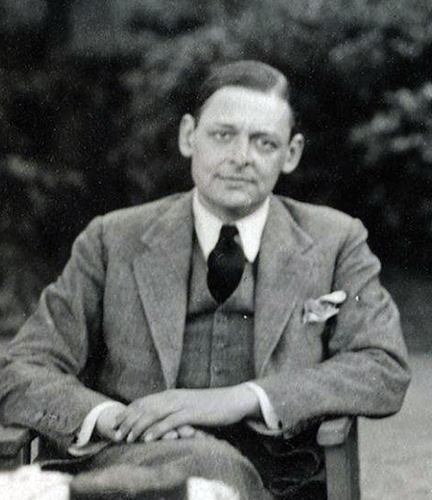
Copyright is an intellectual property right that allows an author/creator to decide in what circumstances their work can be copied or reproduced.
Many of the activities undertaken as students or staff at the University involve using copyright protected work (this could include extracts from books, journal articles, still and moving images or sound clips).
Even though the copyright holder has the exclusive right to copy their work, these activities are permitted if certain exceptions or licences are applied. This guide introduces copyright at Aberystwyth University and explains the steps students, lecturers and researchers should take to ensure they are using copyright materials in a legally compliant way.
In applying for your Abercard you have agreed to observe the Rules and Regulations of Information Services including the Copyright Agreement and Acknowledgment.
What is a copyright work?
Copyright protection is automatic. An author or creator does not need to publish, register or apply for copyright.
Copyright applies to any works created in hard copy or electronic format. This includes:
Any piece of work which has been written or recorded in some way (published and unpublished) is protected by copyright. A work that has been expressed in a 'fixed' way is protected by copyright. Thoughts, ideas and facts are not.
How long does copyright last?
The length of copyright protection depends on the type of work and how long ago the work was created. For example:
| Type of work | How long copyright usually lasts |
| Written, dramatic, musical and artistic works | 70 years after the author’s death |
| Sound and music recordings | 70 years from first publication |
| Films | 70 years after the death of the director, screenplay author and composer |
| Broadcasts | 50 years after first broadcast |
| Layout of published editions | 25 years after first publication |
| Still images/photographs | 70 years after photographer’s death |
These time limits should always be treated with care. For example, while an author’s copyright lasts for 70 years after the author’s death, this is not always a good basis on which to copy a work as copyright may have been passed on to another party.
Works which are out of copyright or have otherwise been exempted are sometimes referred to as being 'in the public domain'
The University subscribes to licences issued by several agencies acting on behalf of various rights holders. In return for the licence fee, which goes towards payments to rights holders, the institution may copy and utilise certain materials within set guidelines.
It is essential to recognise that these licences relate solely to use within the context of educational or instructional purposes. They do not cover the publishing of works, the further broadcasting of material nor its public performance.
| License | What it covers | How it works |
| Copyright Licensing Agency (CLA) | photocopying or scanning of works held by the University for educational purposes. | Request a chapter or article is digitised through Aspire Reading Lists |
| Newspaper Licensing Agency (NLA) | photocopying of articles from some national and regional newspapers. | Links and copies of articles from newspapers can be shared among staff and students provided license terms are followed |
| Educational Recording Agency (ERA) | Recordings from UK TV and radio broadcasts | Use recordings of TV and radio broadcasts in teaching/study/research using university Box of Broadcasts access |
An author or creator might be happy to allow others to use their works under certain conditions. A popular way of doing this is by using a Creative Commons (CC) license.
A copyright owner may apply use a CC license to openly share a copyright work but place restrictions on commercial use or adaptations or require any adaptations to be licensed on the same terms. There are a range of Creative Commons licences which permit varying degrees of reuse.
The below image shows what you can do with Creative Commons licensed material. For information on applying a Creative Commons license to your own work, see Protecting Your Own Work.
JoKalliauer; foter, CC BY-SA 3.0 <https://creativecommons.org/licenses/by-sa/3.0>, via Wikimedia Commons
A copyright owner has exclusive rights over a copyright work. This means that their permission is needed before using their work in certain ways.
Only copyright owners have the right to authorise activities known as restricted acts. These include:
In undertaking any of these activities, you should ensure that you are covered by an appropriate license to do so, or that a copyright exception applies to your activity. To see what this means for your work at the university, see the Copyright for Students, Lecturers and Research tabs for practical guidance on using copyright materials in your work in a legally compliant way.
Key facts
Many of the copyright exceptions which apply in higher education depend on the concept of fair dealing
There is no precise definition of what is fair, but it depends on:
This means you should:

“Immature poets imitate; mature poets steal” T.S. Eliot. The Sacred Wood.
Whilst old Thomas Stearns was a great poet, this is not necessarily the best advice from a copyright point of view. (Image from WikiMedia Commons in the Public Domain.)

William Hogarth, an early champion of copyright law, reminds us that authors and artists should be rewarded for the fruits of their labours. If he was still around, he would also advise against spending those rewards on gin!
(Image from Wikimedia Commons. In the Public Domain.)

Students: under the terms of fair dealing you are permitted to make single copies of a limited amount of a text for private study or research of a non-commercial nature.
Image: Eli Francis, Old Books (Unsplash), 2016, CC0-1.0